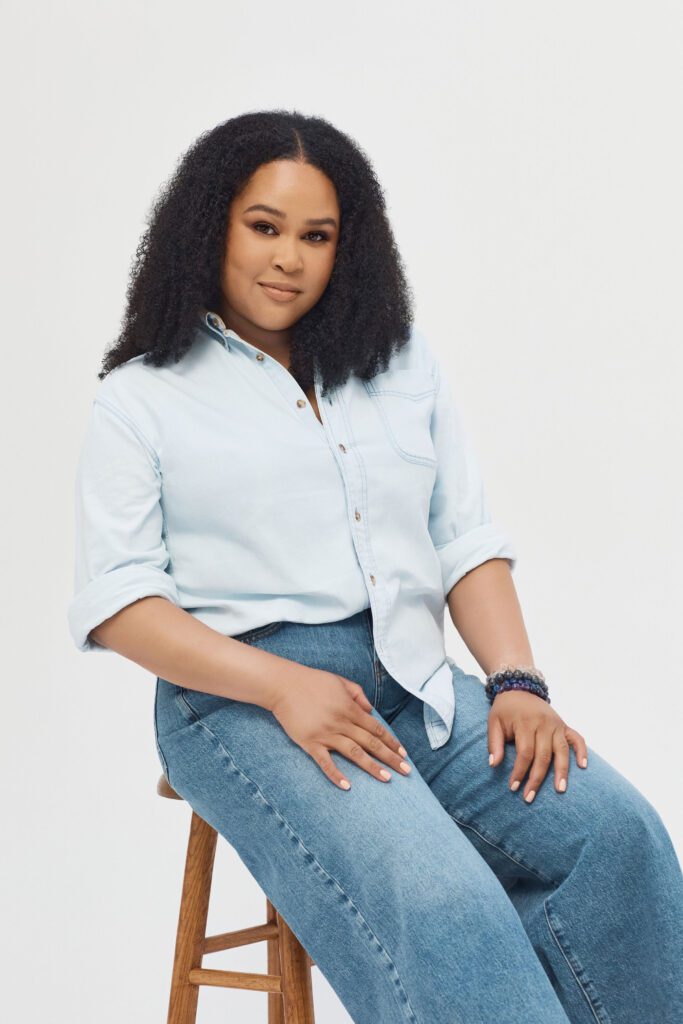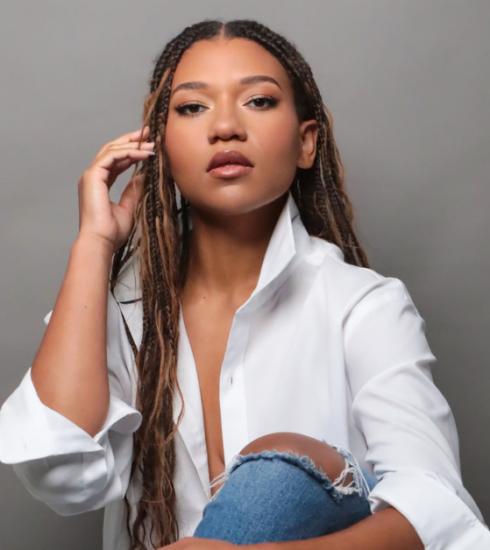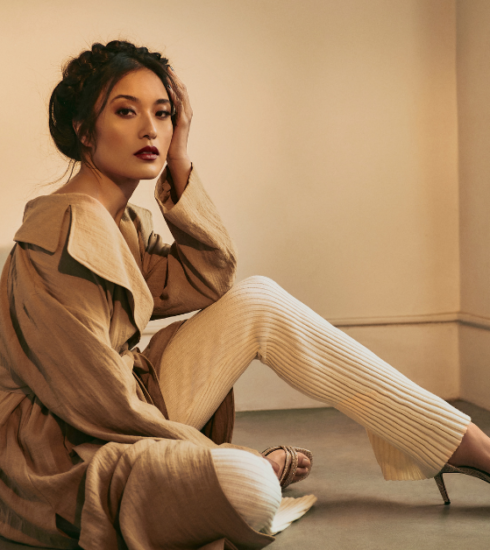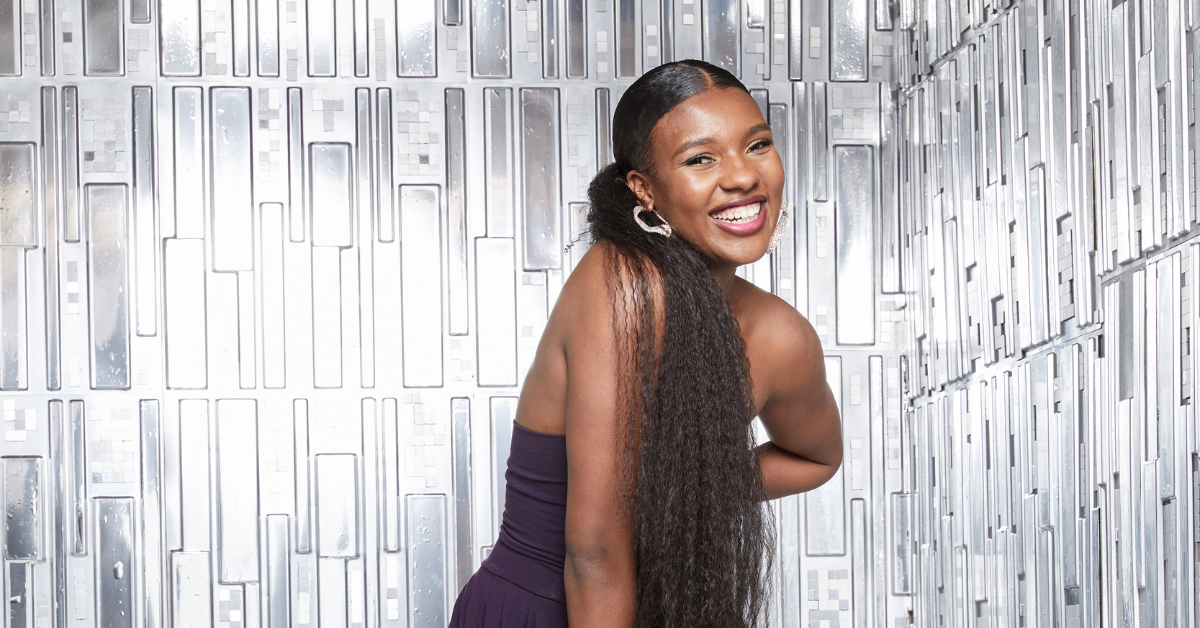A Full Circle Moment for Benni Latham and her career!
Benni Latham’s journey is coming full circle. She currently stars as the lead voice of Ranger Dot Malto in the popular Nickelodeon animated series “Transformers EarthSpark.” She is truly shining right now. From a young black girl growing up and seeing herself in cartoon characters on television to now providing that same representation for others. But this time, she is part of something that offers multiple layers of representation in animation. I thoroughly enjoyed our conversation and gaining insight into her career and the significance of this moment for her.
Cox: Benni, before we get into your latest project, I want to know when your love for entertaining began.
Latham: I’ve always been an imaginative child. At least that’s what my family says. I’ve had a big imagination ever since I could remember. Funny enough, Inspector Gadget was my favorite cartoon growing up. I don’t know if you remember the show in detail, but there was this character, Penny. She was this little girl on the show who would go on adventures. I would pretend I was going on adventures with her.
Fast forward to a full-circle moment when A Different World came out. I didn’t know Cree Summer, who played Freddie Brooks on the show, was also the voice of Penny. I put two and two together and thought to myself, oh gosh, Penny is black.
Cox: I read an acting book where the writer stated they asked the students in their workshops to identify the age of their inner child. They said that the age of the inner child identified is monumental because it reflects a significant time in your adolescence that shaped you. What would be the age of your inner child?
Latham: I can tell you immediately that she is ten years old. She is a theater kid, and at the age of ten, I was in theater. This was a special time for me because that’s when I understood the joy of performing and loving to entertain. I loved being able to share laughter with people. I actually played an alien in the elementary school Christmas pageant. I didn’t care if I played a tree, I was happy to be on stage.
Cox: What did that mean for you to realize that this character was voiced by a black woman?
Latham: It let me know that, as a black girl growing up, I could do this. I was sold from there on the art of voice acting.
Cox: So, after that, what was next for you? How did you get your initial start in voiceover work?
Latham: I took acting and improvisational classes at Groundlings and Upright Citizens Brigade. Through these classes I got linked with a voice-acting teacher by the name of Melique Berger. I studied under her for a few years. From there, I got signed with my agent and started going out for animation and commercial voiceover auditions. In fact, you’re actually talking to the voice of Cedars Sinai Hospital. That’s me you hear when you call.”

Cox: I know this had to be a full-circle moment for you, from loving everything about Penny to landing the role of a similar black female animation character.
Latham: It was definitely a full-circle moment. My journey hasn’t been a straight line to success. Fun fact: I was a TSA agent at the LAX airport from 2006 to 2016. There was a traumatic event that had taken place there in 2013, which was a huge wake-up call. I thought to myself during the event that, through it all, I’m still not pursuing my passion. I told myself that I was going to go hard and give it a shot. I had nothing to lose, and I owed it to myself to try. This was a sobering moment for me because it was a meeting between myself and my inner child.
Cox: Before we get into your role in Transformers: Earthspark, I want to know how you land a voiceover job. Like, how do you win an animation role?
Latham: As far as winning over animation, all acting is art, and it’s anchored in the truth. The truth is what you create for yourself and your character. And at the heart of it all is good art. In animation, there is always some level of truth that resonates with people. I enjoyed Penny in Inspector Gadget because she was brave and strong. And that’s what I wanted to be as a kid.
Cox: What’s the major difference between voice-over work and acting work, in your opinion?
Latham: You don’t have the luxury of costumes or sets. It’s just the dialogue and director. So, you have to really lock into your imagination and make the world real. It will be reflected in your voice performance.
Cox: Now let’s get into the Transformers: Earthspark. The series was recorded during the pandemic. How was that?
Latham: I didn’t get to see my co-stars until we did the premiere. I had a very limited view of what they looked like. The only thing I had were their voices from our recordings. My imagination was stretched and liberated. It’s because I wasn’t limited to what was right in front of me, like when you are acting on set or stage. I was allowed to be as big or small as necessary to make the performance effective.
Cox: Tell me all about your character.
Latham: My character is Ranger Dot Malto. At her core, she is a mom who loves her family. She is a military mom and was injured in combat. Her injury was the turning point in her career. That’s when she decided to hang it all up and dedicate herself to spending more time with her family. I can relate to her military background because my grandparents were in the military. One served in the Air Force and the other in the Army. I grew up with that type of military discipline in the household. I was able to channel that into this character because I understood that military discipline in the home came from a loving place. And Ranger Dot Malto loves BIG! There is this strong sense of protectiveness she has for her family and community.
Cox: Why do you think people are going to enjoy this series?
Latham: I will say it’s the representation that is showcased throughout. We have a very diverse cast. And I mean diverse in terms of the voice-over actors and the animated characters. Ranger Dot Malto is a black woman with a Filipino-American husband. And we have kids, which makes them biracial. So, you get to see a mixed family just being a family. Yes, we have these wonderfully blended cultures, but at the core of it all, it’s just a family with a mom, dad, and kids.
Oh, and what’s exciting is that you are introduced to a new species of transformer. Everyone knows about Optimus Prime, Bumblebee, Megatron, and all the others who fight on their sides. You are going to be introduced to the first robots to be incarnated on Earth. They are half earthling and half Cybertronian, which makes them a mixed species.
Cox: This series seems to have many layers compared to what comes to mind when we think of Transformers.
Latham: There are a lot of different layers you get to appreciate. They come from the diversity of perspectives and representations. You have these mixed children of mind who question their identity regarding community and fitting in. That’s something you see reflected in the old-school Transformers as they meet the new generation and wonder how they are going to be able to fit in as well.
Cox: Representation is throughout the series. Why do you think it’s important for a series to have layers of representation in terms of diversity?
Latham: Well, there’s a lot of layers to that question off top. But I would say that if I see myself in a character, then I get invested. For example, my nephew is mixed (half black and half Filipino). He grows up watching a series that reflects him. As an auntie, that does something for me as well, because there are millions of children who are like my nephew and don’t get to see themselves reflected in television and film as often. And they feel just like my character’s kids because, at times, they don’t feel like they fit in on either side of their communities. Even if they aren’t specifically mixed like the character, they get to see a universal truth and understand how others go through it. They see the problems we all face and learn from them all.
This show does it in a way where we are talking to the children and not to them. Kids today are smart and don’t miss anything. Here they get an animation that talks to them in a way where they won’t feel pandered. That’s important because when you don’t speak to children the right way, they shut down and miss what is being taught or demonstrated. I mean, that goes for adults too!
Photography Credit: Rowan Daly






